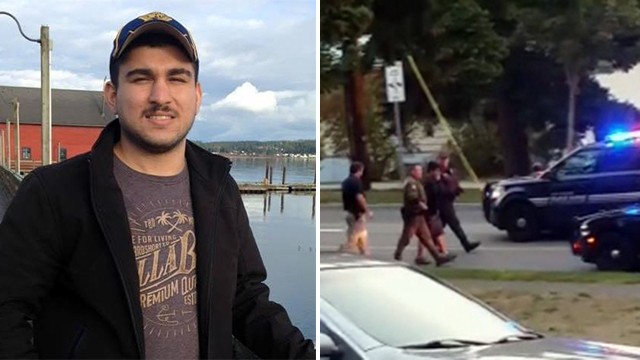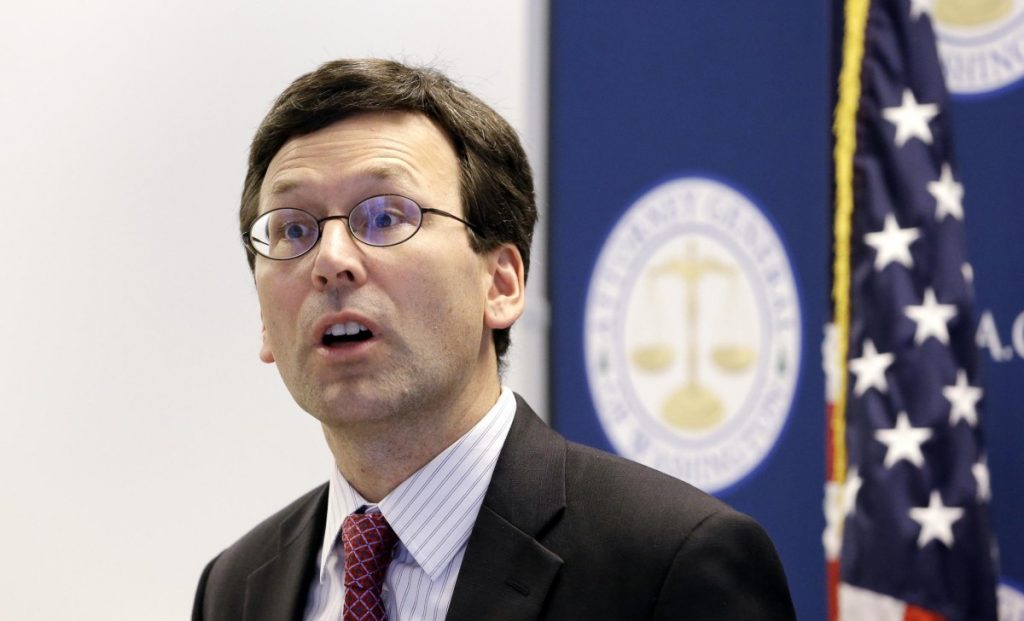TV Ads for Other States Promote Deception
When Oregon had a ballot to legalize marijuana in 2014, King County Sheriff John Urquhart appeared on TV ads claiming that legalization hadn’t created problems in Washington. However, on November 4, 2013, King County experienced a massive butane hash oil (BHO) fire explosion that required 100 police and fire fighters to extinguish over a 7-hour period. What a cover-up!
BHO labs are marijuana labs and today they’re far more common than meth labs. This type of fire was extreme, having completely damaged at least 10 apartment units, killing a woman. Other sheriffs rebuked Sheriff Urquhart when he went on TV the first time.
Last year Urquhart repeated his deception, appearing in ads for Massachusetts. Colorado doesn’t coverup its pot problem so well.
The state seems clueless as to why Washington’s mental hospitals cannot meet the state’s needs. Thomas Kindlen, who oversees services for forensic patients for the state, said “he wanted to explore ideas from the ordinary to the outlandish to find out. That could range from struggles with opioid addiction, increased recognition of mental health problems, or practices by defense lawyers, to ‘because the price of gas went up’ he said.” The increase in referrals of forensic patients probably does come from better recognition by police. However, Kindlen should look no further than the impact that legalizing marijuana has had on the state’s mental health problems.
Investigators should find out if the recent Freeman High School shooter and the teen who started the Eagle Creek fire were marijuana users. The fire covered about 40,000 acres of two states and it’s still burning. The 15-year-old who started this fire came from Vancouver, Washington. He was giggling with his friends as he threw firecrackers in the gorge, and appeared indifferent.
I-502 Was Designed to Appeal to Non-Users of Marijuana
Alison Holcomb of the ACLU had written the I-502, the 2012 ballot which legalized pot in Washington. She tackled the three biggest concerns that the public had about accepting the legalization of marijuana. For I-502, she put in safeguards that seemed to protect against stoned driving, public smoking of marijuana and under-age usage. It was a brilliant tactic. Holcomb deliberately wrote the ballot so it could appeal to non-users of marijuana and take away their biggest concerns.
Almost immediately after the law passed, the state altered some of these terms related to stoned driving and under-age use of pot. Two mass shooters in Washington, 20-year-old Arcan Cetin and 15-year-old Jaylen Fryberg, were heavy marijuana users. (Cetin shot randomly at Cascades Mall and Fryberg killed four friends at his high school and then turned on himself. ) It would not be surprising of the recent shooter at Freeman High School in Spokane is also a marijuana user.

Furthermore, the city of Seattle eventually decided not to issue citations against public use of marijuana. Since the restrictions were disregarded so quickly, one wonders if the changes were always part of the ACLU’s plan.
When Fife, Washington, did not want a dispensary in its community, the ACLU represented a dispensary owner, trying to force the city to allow pot. Fife, however, won in court.
Coverup Began Before the Ballot
The cover-up began even before the state voted to legalize pot. A stoned driver killed Rosemary Tempel on July 17, 2012, just 3-1/2 months before the vote to legalize. (DUID Victims Voices website reveals judicial mishandling in the evidence in this case.) Another stoned driver hit Justin Relethford, 16, on the shoulder of the road on Halloween, just one week before the vote to legalize. No one informed the public about marijuana’s role in these tragic crashes.
In 2015, Washington has the highest percentage marijuana-impaired drivers in fatal accidents in the nation. When looking into how Washington treats stoned driving, it’s easy to see that the state is overly protective of drivers under its influence. Justice didn’t work well for the families of either Rosemary Tempel or Relethford whose deaths occurred before legalization. It also seems that the state did not diligently pursue justice for some other stoned driving incidents:
The death of Blake Gaston
The deaths of Shane Ormiston and Gabriel Anderson on a sidewalk when they were going to gym class
The death of Donald Collins Marijuana users love to claim they aren’t impaired and that any DUID charges against them are unfair. The complaints of those who like to get stoned – at the expense of others — wins sympathy more than it does for drunk driving.
After a 17-year-old killed three of his friends while driving stoned in 2015, he was charged with vehicular homicide. He spent two years in juvenile detention; the victims’ families felt his punishment was too light.

Marijuana Stores — No More Honest than your Underground dealers.
What are they selling in dispensaries? A reader sent us her terrible experience of a joint laced with wax that she purchased from a pot store which provided no education or explanation.
The designers of I-502 wrote specifically to get public favor. It worked, but then the state categorically disbanded the will of the people by changing the terms of the initiative. The deception begins one step at a time, and other states need to be aware of the deception process. Most people familiar with the pot of the ’70s and ’80s cannot handle the high THC pot sold in Washington today.
Attorney General Bob Ferguson probably knows that marijuana is a scam. What can he do about it? If he is honest, he will begin to speak out against this industry, press charges and stop defending it. Meanwhile we wonder if the marijuana industry paid to have Sheriff Urquhart appear in ads for other states. It was a successful deception, protecting campaign contributions and a devious industry based on addiction and destruction.

